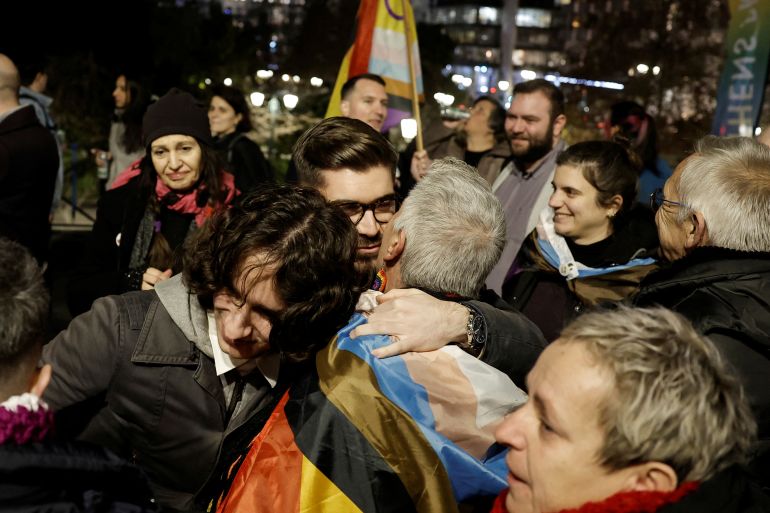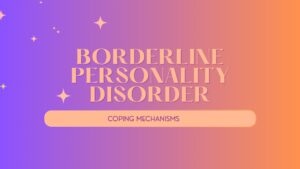Each year on May 17th we celebrate International Day Against LGBTQIA+phobias. Both of us being members of the queer community, it is important to point out recent events to showcase the importance of having such a day. It is more than Pride. It is taking into account everything that’s been happening in the world and fighting against hate.
What happened on May 17th?
We celebrate on this specific day to commemorate the day the World Health Organisation decided to remove homosexuality from the list of mental disorders on May 17th 1990. It is important because our identities were recognised. It was no longer classified as an illness that needed to be treated or cured. Since then, there have been many advancements in the fight for LGBTQIA+ rights. There is more visibility around the community and more laws concerning the safety of different groups within the queer community.
“No One Left Behind”
The theme of this year’s holiday is “No one left behind: Equality, freedom and justice for all”. It emphasises what we have been saying for years. In the same way that feminism isn’t desiring superiority for women, asking for LGBTQIA+ rights isn’t asking for special treatment. We are simply asking for an equal place alongside our counterparts. Queer rights have found a significant decrease in the past years, almost halting the progress previous generations and ourselves have been fighting for. Despite many countries still having laws surrounding LGBTQIA+ sexualities and identities, they cannot erase our community.
No Pride Without Trans Rights

In the past couple of years, trans rights is a target all over the globe, but more specifically the US and the UK. Many states adopted anti-trans laws. These include teachers notifying the parents of a child if they suspect the child is trans, access to medical care being almost inaccessible, and governments compiling lists of transgender people that they can later use to target the individuals. In the UK, there are laws prohibiting puberty blockers for trans minors. There are also long waiting lists for those who wish to access gender-affirming healthcare.. The average wait for a first appointment with the NHS is three years.
The murder of sixteen-year-old Brianna Ghey in the UK shocked the world. However the statistics for transgender people being killed is much worse. In general, trans people are more prone to hate crimes, physical violence, sexual harassment and assault, displacement, and discrimination. In 2023, three-hundred and twenty-one trans people were murdered. The majority being trans women or trans feminine people. Trans people of color make up 80% of the deaths, with the age group that is most targeted being 19-25.
Trans people deserve to grow old. Though, due to the violent climate of the world, even if many aren’t targets of lethal hate crimes, the discrimination they face has heightened suicide rates. Focusing on protecting trans lives is primordial. Two trans women of color, Marsha P. Johnson and Sylvia Rivera, are the reason we have our Pride marches, but even if they weren’t at the head of the movement, trans people deserve nonetheless to live a long and peaceful life.
Anti-Discrimination Laws for Trans+ People

Although there’s a lot to fight for when it comes to trans+ lives, there are good news too. The state of Queensland in Australia updated their anti-discrimination law to be more explicit in protecting trans+ people, with harsher punishments for discrimination and villification. That includes trans, non-binary, gender-diverse and intersex people. The law specifies that “gender identity means a person’s internal and individual experience of gender, whether or not it corresponds with the sex they were assigned at birth”. The state of Queensland was the last to expand the definition of the Anti-Discrimination Act, therefore a victory for Australia overall.
Sweden also made history by lowering the legal age for citizens to change gender. Individuals can now change the gender on their legal documents at the age of 16, instead of 18. Though they’ve been the first country to legalise gender reassignment, this is only a small step in giving trans+ people more rights, as they still divide gender change on documents from gender affirming surgery. Sweden’s process for gender change is a lengthy one, but this law would allow the process to be simpler starting from 2025.
As France and UK pass transphobic laws prohibiting the use of puberty blockers, thousands marched in 49 cities across France, as well as Brussels and Liege in Belgium in solidarity. Politicians hide behind the excuse of “protecting vulnerable minors”, when in reality they’re adding more damage to one of the most discriminated groups. Trans youth are seeing their rights attacked from almost everywhere over the globe, but we can’t be apathetic and lose hope. We need to stand in solidarity with the the trans+ community.
UN Passes Resolution for Intersex Rights
Although people have a lot of issues with trans people consenting to gender-affirming surgery, they have no problem dictating the gender of an intersex person. When someone is born with characteristics that aren’t specifically male or female, surgeries imposing a certain gender are done without the person’s consent. A pivotal moment in the history of intersex people’s rights happened this year, as the UN passed a resolution deeming these surgeries as human rights violations.
The issue was brought forth by the leaders of Australia, Chile, Finland, and South Africa. Named “Combating discrimination, violence, and harmful practices against intersex persons”, the resolution aims to “realise the enjoyment of the highest attainable standard of physical and mental health”. No one should have to go through forced or coerced medical procedures. This is a huge step that gives intersex people the right to grow up and make decisions about their own bodies.
Lesbian Safety Is Not Guaranteed

Hate breeds more hate, it’s been proven. Researching whether a country you want to travel to accepts you is a reality a lot of same-sex couples go through. Argentina was considered one of the safest countries for same-sex couples, until last week. On May 6th, two lesbian couples who were residing in the same room of a boarding house in Buenos Aires were set on fire. The attack left three of the Argentinian women dead, while one is still recovering in the hospital. While it is not confirmed that this was a homophobic hate crime, the room in the boarding house in Buenos Aires was targeted, a fire that started with rags doused in flammable substances. The rest of the residents had to evacuate after the fire spread from the two lesbian couples’ room.
The violent crime shocked the country, where protesters took to the streets to demand justice for the victims’ lives on Monday, May 13th. The protesters asked for more action towards homophobic crimes from the government. Argentina’s current leadership has been blamed for promoting a discriminatory speech against LGBTQIA+ people, with responsibility being placed on the state by an anti-gender violence foundation. There is no denying that when hatred has a platform, the people feel entitled in their own prejudice and hatred, and we end up with tragedies such as the one in Argentina.
Marriage Equality… But Not Everywhere

You might have heard the phrase “You’ve got gay marriage, what else do you want?” at least once in your life. Well, that’s not the case for everyone. Same-sex marriage is quite recent, with Denmark legalising same-sex unions in 1989. Today, there are only thirty-six countries that allow same-sex marriage. Gay rights remain in the minority as an opinion. Although activists all over the world are fighting for recognition same-sex relationships, the process is slow.
However, there is good news. This year, two countries have approved gay marriage, Estonia and Greece. They both made history, Estonia being the first post-Soviet country to adopt same-sex marriage, and Greece being the first majorly Christian Orthodox country to do as well. Greece also legalised adoptions by same-sex couples within the same vote.
Currently, the Human Rights Campaign Foundation is fighting for these countries to legalise same-sex marriage this year: Czechia, India, Japan, Nepal, Philippines and Thailand. We can only hope these court rulings will be successful, and more countries will follow the path towards marriage equality.

Moving Forward
We know some of these news are disheartening to hear, so don’t forget to take care of yourself, especially if you’re part of one of these marginalised groups. Finding the balance between your well-being and your activism is important, don’t ignore one or the other as they both matter in the long term.
The truth is, no one of us can be free until everybody is free.
Maya Angelou
Why not check out this article on lesbian bars in Europe?
Sources:
- FORBES, Beaten, Stabbed And Shot: 320 Trans People Killed In 2023 – New Monitoring Report, <320 Trans People Killed In 2023 – New Monitoring Report (forbes.com)>, accessed on May 16th 2024.
- QHRC, News: Trans, gender diverse and intersex people now better protected from discrimination, <QHRC : News: Trans, gender diverse and intersex people now better protected from discrimination>, accessed on May 16th 2024.
- QHRC, QHRC : Gender Identity, <QHRC : Gender identity>, accessed May 16th 2024.
- BBC, Sweden passes law lowering age to change legal gender from 18 to 16, <Sweden passes law lowering age to change legal gender from 18 to 16 (bbc.com)>, accessed May 16th 2024.
- them, More Than 10,000 People Took to the Streets in France and Belgium to Support Trans Rights, <More Than 10,000 People Took to the Streets in France and Belgium to Support Trans Rights | Them>, accessed May 16th.
- Human Rights Watch, United Nations Passes Groundbreaking Intersex Rights Resolution, <United Nations Passes Groundbreaking Intersex Rights Resolution | Human Rights Watch (hrw.org)>
- PinkNews, Three women dead after lesbian couples set on fire in ‘abhorrent’ Argentina attack, <Argentina: Three women dead after attack on lesbian couples (thepinknews.com)>, accessed on May 16th.
- Buenos Aires Times, Protesters demand justice following lethal arson attack on lesbians, <Protesters demand justice after lethal arson attack on lesbians | Buenos Aires Times (batimes.com.ar), accessed on May 16th.
- Human Rights Campaign, Marriage Equality Around The World, <Marriage Equality Around the World – Human Rights Campaign (hrc.org)>, accessed on May 16th 2024.




